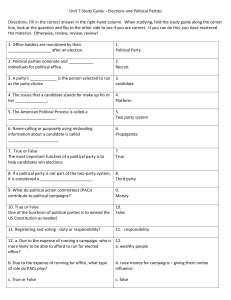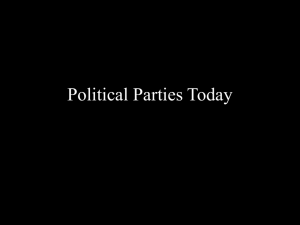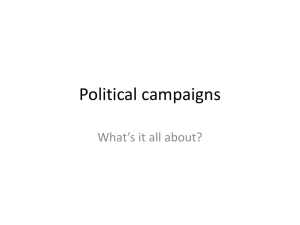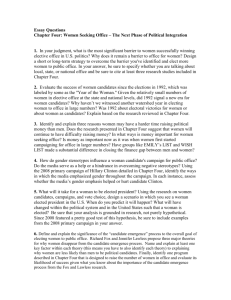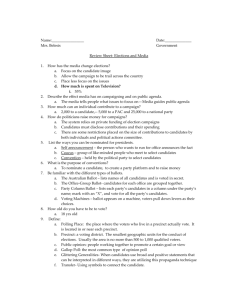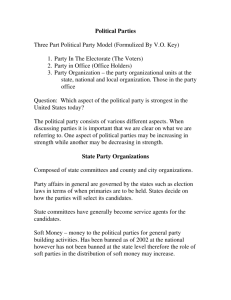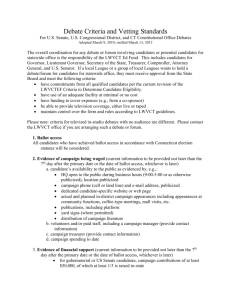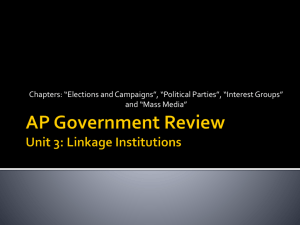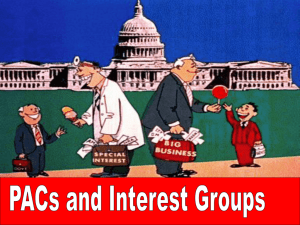The Role of Money in Politics
advertisement
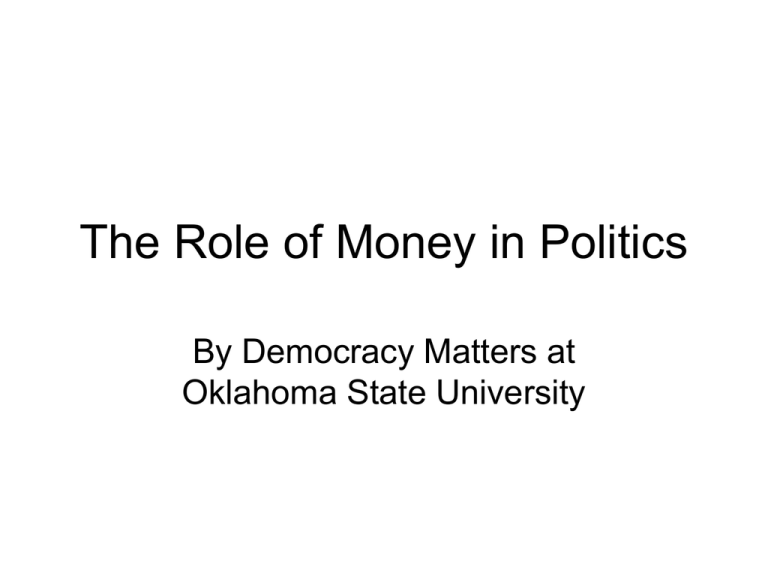
The Role of Money in Politics By Democracy Matters at Oklahoma State University HOW DO PRIVATELY FUNDED ELECTIONS WORK? IS THERE ANY WAY WE CAN MAKE CONGRESS ACCOUNTABLE TO THE PEOPLE AGAIN? YES, AND THIS PLAN EVEN HAS BIPARTISAN SUPPORT FROM CONGRESS AND VOTERS WHO IS FIGHTING FOR CLEAN AND FAIR ELECTIONS EVERYDAY? WE ARE. Publicly Financed Campaigns to Strengthen American Democracy with the Fair Elections Now Act, special interest lobbyists will hold no more influence over clean candidates than do average American citizens. Legislation written and passed by clean candidates will be representative of the needs of their constituents and community. Clean candidates do not have to worry about fundraising and can focus their time in office on representing voters instead of donors. Once elected, clean candidates will represent the interests of voters instead of big donors and special interest lobbyists. Released from having to cater to big donors, clean candidates are able to do the grassroots mobilization and voter outreach that puts them in direct contact with voters. Maine, Arizona, Vermont, Connecticut, New Mexico, North Carolina, and Oregon all have successful forms of a fair election system. 84% of the Maine legislature are clean candidates. When a candidate receives public funding, they are considered a clean candidate and are no longer allowed to raise or spend any private money. To demonstrate broad public support, a candidate must gather signatures supporting their candidacy and small donations that go to fund the fair elections system. Those who demonstrate leadership and have good ideas for their community are given the opportunity to run a competitive campaign, regardless of their own wealth or access to other people’s wealth. It is a voluntary system that protects free speech; other candidates can still choose to raise and spend private money. To qualify for public financing, candidates must demonstrate that they have significant public support from their constituency. To gain favor with big donors, politicians write and pass legislation that favors them at the expense of the public good. Conflicts of interest arise when politicians take money from the same industries for which they must write laws. Instead of focusing on the needs of the people, politicians spend 1/3 of their time in office raising money for their next campaign. To get wealthy special interest money, politicians need to appeal to their needs and interests. Only 0.25% of the population in America donates $200 or more to a political campaign. The majority of campaign funding comes from corporations, banks, billionaires, & wealthy special interests. Donating more money to campaigns gains greater influence over politicians who are in office. To raise money for their campaign, politicians solicit donations from wealthy people and groups. Candidates have to raise and use private funds to finance their campaigns. Campaign staff, office space, advertisements, travel, etc., cost lots of money. In over 90% of congressional races, the candidate who raises the most money wins. To get elected, candidates are forced to run competitive and costly campaigns.
